immune support
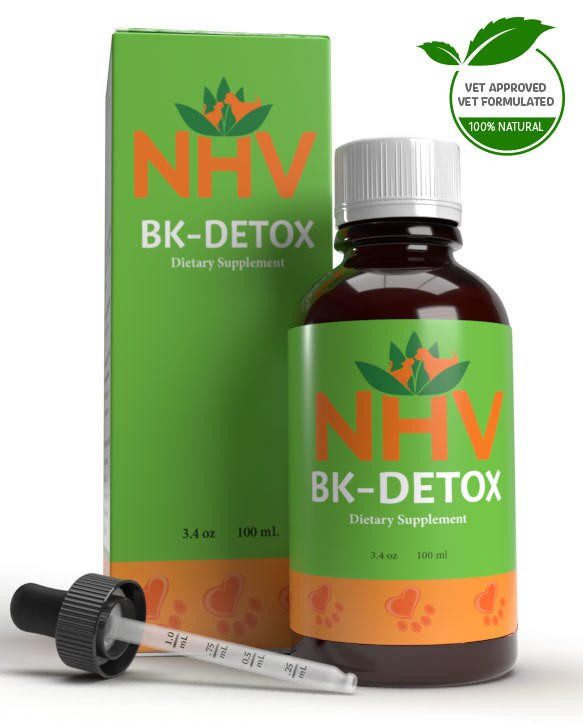
free shipping over $100 (USA & Canada)
1-877-937-4372 the pet expert hotline
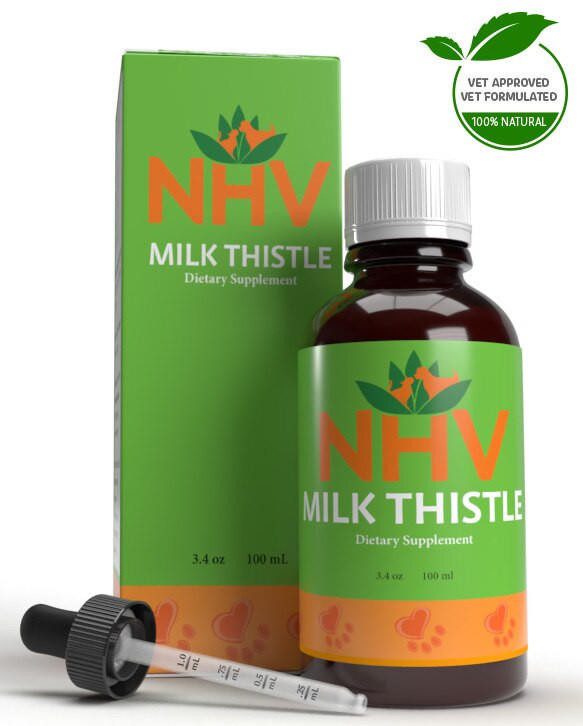
100% Natural Liver and Kidney Detox and Cancer Support in Cats

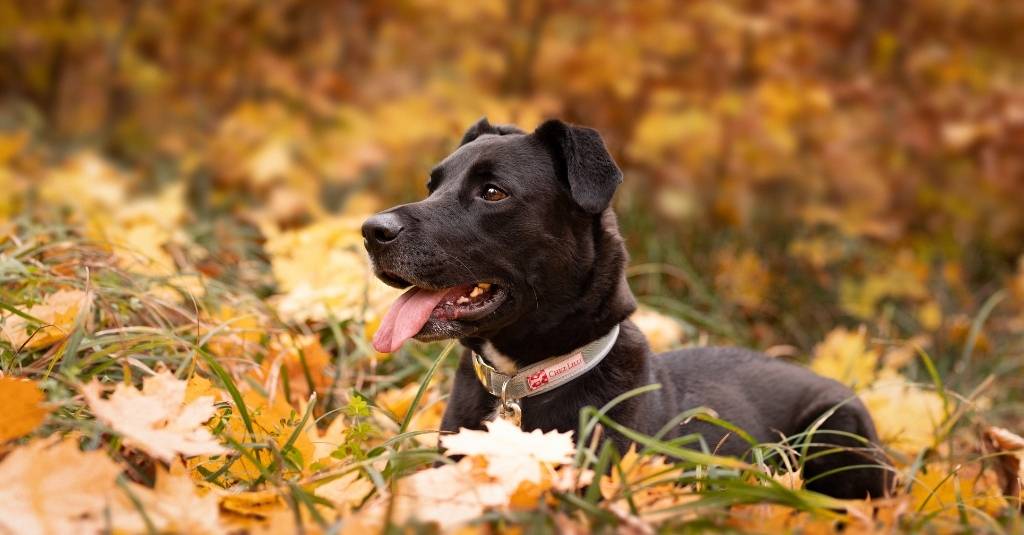
The summer sun is setting, and the cooler fall weather is on its way. Fall brings along some unique dangers for our pets. Unfortunately, in my time in veterinary clinics, I have seen many pets present with acute toxicity caused by a number of substances. If you suspect your pet may have eaten something and you are not sure whether it is toxic, call your vet or the Pet Poison Helpline immediately. Be sure to gather as much information as possible, such as ingredients of the products or photos of the plant in question.
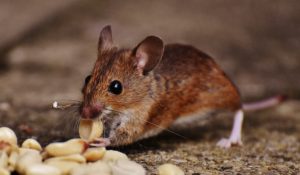
As the weather cools, rodents start looking for warm places to nest. Unfortunately, this is often in homes and the solution for some is to lay out toxic Rodenticides, or “rat poison”. This substance is obviously not something our pets should be ingesting, but it is made to be intriguing to rodents, which also means it can be intriguing to our pets as well. Many of these products work by stopping the clotting process in the blood. This leads to internal bleeding and eventually death. Pets who hunt can also be susceptible to this poisoning if they ingest rodents who have to succumb to the toxin.
If you know your pet has gotten into any rodenticides, it is extremely important that they be immediately rushed to the vet. If it has been less than an hour or so, the veterinarian will be able to induce vomiting to remove any undigested material from your pet’s stomach. This is usually followed by oral doses of activated charcoal to help absorb any toxins in the intestinal tract. Your pet will require close monitoring and blood samples will be taken to check for adequate blood clotting time.
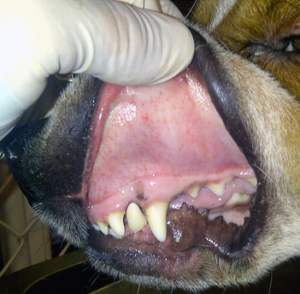
If your pet ingests rodenticide without your knowledge, the first signs you may notice are petechiae. Petechiae are small red spots on the skin and mucous membranes. These spots indicate the beginning of an inability of the blood to clot. If you notice these spots anywhere on your pet, see your vet immediately. It is possible for pets in advanced stages of rodenticide toxicity to make a full recovery with prompt and adequate treatment. Treatment involves supplementing vitamin K, which plays an important role in blood clotting.
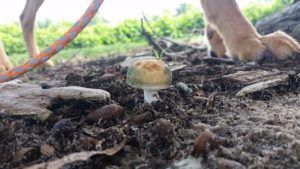
The onset of cool and moist weather makes it the prime time for mushrooms to grow.
The onset of cool, moist weather makes it the prime time for mushrooms to grow. Mushrooms can grow almost anywhere, you may even see them on lawns in the fall. There is a very large variety of mushrooms, and obviously, some are not toxic. It can sometimes be difficult to tell the toxic varieties from the safe varieties. If you witness your dog eating any mushroom and you aren’t sure the type, head to your vet immediately so that they can induce vomiting.
Toxic effects from mushrooms range from mild gastrointestinal effects to more severe neurological symptoms. Other possible toxic effects include hepatotoxicity (toxicity of the liver).
The earliest symptoms of mushroom toxicity include extreme lethargy, vomiting, diarrhea, and collapse. If you notice any of these symptoms and you think your pet may have had access to mushrooms, have your pet seen by a veterinarian immediately.
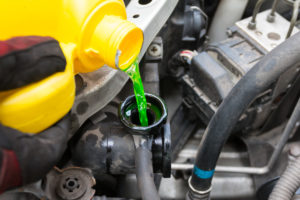
As winter approaches, many of us are topping up the fluids in our vehicles. Ethylene glycol or “anti-freeze” can be extremely toxic to pets. Unfortunately, it is also quite sweet, which is often the reason pets are inclined to ingest it. Luckily many companies now add a bittering agent to try to avoid consumption, however, not all pets are bothered by this. Ethylene glycol can cause rapid acute kidney failure when ingested. When ingested, initial signs of toxicity may include disorientation and extreme lethargy. It may have similar effects to alcohol intoxication. The chemical then causes a sudden production of calcium oxalate crystals to form in the kidneys which rapidly and severely affects kidney function. After ingestion, 100% of kidney function may be lost in about 72 hours. At this point, urine will no longer be produced. Unfortunately, once kidney function is lost it cannot be regained, so complete loss of all kidney function is fatal.
Even a few small licks of antifreeze can be fatal to a cat or small dog, so if you suspect your pet may have ingested even a very small amount of anti-freeze, it is very important to see a veterinarian immediately.
Despite our best efforts, accidents can happen. If your pet happens to ingest a toxin, use Milk Thistle along with veterinary recommended treatment to help support the liver in processing the toxins and flushing them out of the system. NHV BK Detox can also help your pet’s body to fight and flush the toxins from its system. If your pet has experienced any lasting effects from past toxicity, contact our Pet Experts to find out which supplements can help.
immune support

Detoxifies the Blood and Organs, Boosts (support) the Immune System
buy 2 and save $3
3 month supply for a small to medium size pet.
A dog immune support supplement that helps with compromised immune systems that may be fighting cancer, skin problems or heartworms.

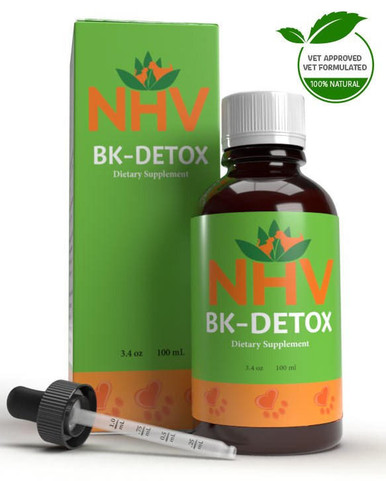
A dog immune support supplement that helps with compromised immune systems that may be fighting cancer, skin problems or heartworms.

Dogs live in a world full of pollutants that they breathe, ingest, and play in every day. Protect them with BK Detox, an all-natural dog immune system (support) booster and detoxifier specially formulated to restore balance, regulate the immune system, and help your pet live a healthier, happier life.
What many people think of as boosting the immune system is actually balancing the immune system. A balanced immune response is the healthiest for helping your pet’s body detect and respond to toxins and infections.
Your dog’s body filters blood impurities through the liver and other vital organs of a dog’s body and then supplies nutrients and oxygen to the cells and tissue, which plays an important role in keeping your dog healthy. BK Detox dog immune system support and detoxifier will help flush toxins out of your pet’s blood and vital organs. When the immune system is compromised, toxins can accumulate in your dog and cause problems including liver disorders, urinary tract infections, skin allergies, tumors, bad breath, and respiratory issues.
Red Clover – A blood-purifying herb with antibiotic and anti-inflammatory properties. It promotes cleansing and the elimination of toxins and deposits through diuretic and expectorant activity.
Cleavers – A tonic that increases the circulation of lymph-impaired areas of the body and aids in the drainage of lymph-engorged cysts, tumors, and inflamed tissues of the urinary tract.
Neem – Has powerful blood purifying and detoxifying effects.
Oregon Grape – Supports and improves digestion by helping rid the body of waste and toxins in the blood.
Gotu Kola – Known for its cleansing, diuretic, and strong antioxidant properties.
Buckthorn – A gentle laxative and blood-cleansing tonic.
Burdock – A highly effective blood purifier abundant in calcium, phosphorus, iron, thiamine, and riboflavin. Supports the entire body while gently eliminating toxic build-up.
Sarsaparilla – A cleansing herb that stimulates the kidneys to flush deposits and clear toxins.
Echinacea Angustifolia – Boosts a dog’s immune system and stimulates the body’s defense mechanism.
Chaparral – A blood purifying antioxidant-rich in amino acids.
Prickly Ash – A tonic that stimulates the entire lymphatic system to encourage the elimination of toxic metabolites.
Select your pet's weight to determine the correct dose.
Bk Detox can be used as a detoxifier every 6 months. For best results administer the recommended dosage until the bottle is finished.
To be taken twice daily. Determine your pet’s weight and then use the easy chart below to determine the correct dose. This is the minimum dosage.
Pet's Weight Dosage
0 - 15 lb = 0.5 ml
16 - 30 lb = 1.0 ml
31 - 45 lb = 1.5 ml
46 - 60 lb = 2.0 ml
61 - 75 lb = 2.5 ml
Over 75 lb = 3.0 ml
For small animals (rabbits, ferrets), avians and reptiles use 1 drop for every 2 lb of body weight.
How to Administer: Shake well before use. The easiest method is to use the dropper provided and place the drops into your pet’s food or favorite treat. You can also use the dropper and squirt directly into the pet’s mouth. Some pets can be finicky, if this occurs consider hiding the drops in foods most pet’s love such as fish, chicken, yogurt, or a favorite treat. If your pet only eats dry food then soak a few kibbles at feeding time.
For Best Results
Herbal dietary supplements are beneficial to the health and well-being of your pet and are safe for long-term use. Every pet responds to natural herbal supplements differently, therefore it is important to be consistent and administer the product daily. Supplements generally take two to four weeks to take effect, however this will vary from one animal to the next.
Product Storage
All NHV Natural Pet Products are pure herbal extracts and contain no artificial additives, preservatives, or coloring. Shelf life after opening is 6 months and must be refrigerated after opening.
Cautions and Contraindications
Do not use BK Detox in pregnant or nursing animals.
Speak to your vet before using our products. A second visit is recommended if your pet’s condition does not improve, or deteriorates after continued use of the supplements.
All information provided by NHV Natural Pet Products is for educational purposes only.
Dogs live in a world full of pollutants that they breathe, ingest, and play in every day. Protect them with BK Detox, an all-natural dog immune system (support) booster and detoxifier specially formulated to restore balance, regulate the immune system, and help your pet live a healthier, happier life.
What many people think of as boosting the immune system is actually balancing the immune system. A balanced immune response is the healthiest for helping your pet’s body detect and respond to toxins and infections.
Your dog’s body filters blood impurities through the liver and other vital organs of a dog’s body and then supplies nutrients and oxygen to the cells and tissue, which plays an important role in keeping your dog healthy. BK Detox dog immune system support and detoxifier will help flush toxins out of your pet’s blood and vital organs. When the immune system is compromised, toxins can accumulate in your dog and cause problems including liver disorders, urinary tract infections, skin allergies, tumors, bad breath, and respiratory issues.
Red Clover – A blood-purifying herb with antibiotic and anti-inflammatory properties. It promotes cleansing and the elimination of toxins and deposits through diuretic and expectorant activity.
Cleavers – A tonic that increases the circulation of lymph-impaired areas of the body and aids in the drainage of lymph-engorged cysts, tumors, and inflamed tissues of the urinary tract.
Neem – Has powerful blood purifying and detoxifying effects.
Oregon Grape – Supports and improves digestion by helping rid the body of waste and toxins in the blood.
Gotu Kola – Known for its cleansing, diuretic, and strong antioxidant properties.
Buckthorn – A gentle laxative and blood-cleansing tonic.
Burdock – A highly effective blood purifier abundant in calcium, phosphorus, iron, thiamine, and riboflavin. Supports the entire body while gently eliminating toxic build-up.
Sarsaparilla – A cleansing herb that stimulates the kidneys to flush deposits and clear toxins.
Echinacea Angustifolia – Boosts a dog’s immune system and stimulates the body’s defense mechanism.
Chaparral – A blood purifying antioxidant-rich in amino acids.
Prickly Ash – A tonic that stimulates the entire lymphatic system to encourage the elimination of toxic metabolites.
Select your pet's weight to determine the correct dose.
Bk Detox can be used as a detoxifier every 6 months. For best results administer the recommended dosage until the bottle is finished.
To be taken twice daily. Determine your pet’s weight and then use the easy chart below to determine the correct dose. This is the minimum dosage.
Pet's Weight Dosage
0 - 15 lb = 0.5 ml
16 - 30 lb = 1.0 ml
31 - 45 lb = 1.5 ml
46 - 60 lb = 2.0 ml
61 - 75 lb = 2.5 ml
Over 75 lb = 3.0 ml
For small animals (rabbits, ferrets), avians and reptiles use 1 drop for every 2 lb of body weight.
How to Administer: Shake well before use. The easiest method is to use the dropper provided and place the drops into your pet’s food or favorite treat. You can also use the dropper and squirt directly into the pet’s mouth. Some pets can be finicky, if this occurs consider hiding the drops in foods most pet’s love such as fish, chicken, yogurt, or a favorite treat. If your pet only eats dry food then soak a few kibbles at feeding time.
For Best Results
Herbal dietary supplements are beneficial to the health and well-being of your pet and are safe for long-term use. Every pet responds to natural herbal supplements differently, therefore it is important to be consistent and administer the product daily. Supplements generally take two to four weeks to take effect, however this will vary from one animal to the next.
Product Storage
All NHV Natural Pet Products are pure herbal extracts and contain no artificial additives, preservatives, or coloring. Shelf life after opening is 6 months and must be refrigerated after opening.
Cautions and Contraindications
Do not use BK Detox in pregnant or nursing animals.
Speak to your vet before using our products. A second visit is recommended if your pet’s condition does not improve, or deteriorates after continued use of the supplements.
All information provided by NHV Natural Pet Products is for educational purposes only.
immune support
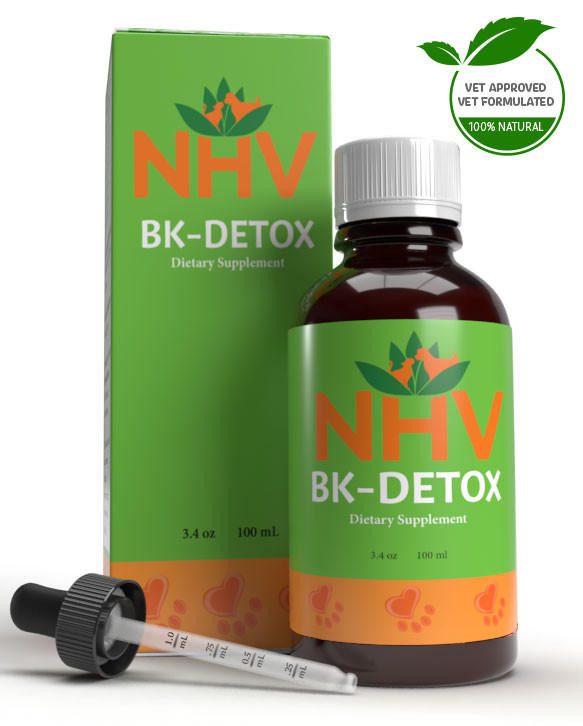
Cat Immune System Booster, Cancer Support, Gentle Detox, and Blood Cleanser
buy 2 and save $3
3 month supply for a small to medium size pet.
All natural, gentle, herbal support for cats, dealing with compromised immune systems that helps detoxify the vital organs and blood.

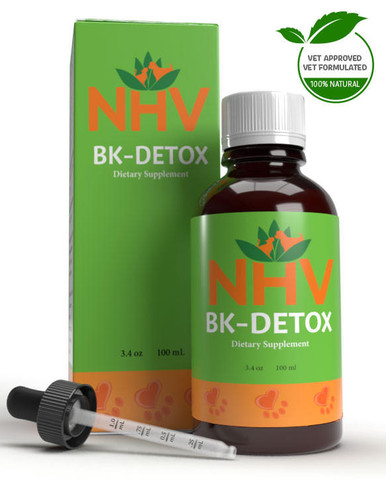
All natural, gentle, herbal support for cats, dealing with compromised immune systems that helps detoxify the vital organs and blood.

Cats live in a world full of pollutants that they breathe, ingest, and play in every day. BK Detox is a gentle herbal detox that helps Protect them with BK Detox, an all-natural cat immune system booster and detoxifier specially formulated to restore balance, regulate the immune system, and help your pet live a healthier, happier life.
BK Detox is especially useful for pets suffering from:
BK Detox will help your cat to gently flush out toxins from their vital organs and cleanse the blood. This is a cat immune supplement that promotes their long-term vitality.
The immune system plays an important role in helping your cat resist infection and overcome sickness.
When the immune system is compromised, toxins can accumulate in your cat and cause problems including liver disorders, urinary tract infections, skin allergies, tumors, bad breath, and respiratory issues.
“Boost” is a common term used for supplements that make the immune system work better, but supplements like NHV more accurately help to balance the immune system. The goal of cat immune system boosters like BK Detox is to balance the immune system so that it can more effectively respond to threats and process toxins out of their body.
BK Detox was formulated by a holistic veterinarian completely from 100% natural ingredients. It is safe for your cat to take alongside any conventional medicine prescribed by their veterinarian, including long-term medications.
See how BK Detox helped Holly with her allergies
How do you know if BK Detox will help your cat? Call our pet expert hotline at 1-877-937-4372 with questions about boosting your cat’s immune system. You can also visit our Pet Expert Q&A.

Red Clover – A blood-purifying herb with antibiotic and anti-inflammatory properties. It promotes cleansing and the elimination of toxins and deposits through diuretic and expectorant activity.
Cleavers – A tonic that increases the circulation of lymph-impaired areas of the body and aids in the drainage of lymph-engorged cysts, tumors, and inflamed tissues of the urinary tract.
Neem – An evergreen tree with powerful blood purifying and detoxifying effects.
Oregon Grape – Supports and improves digestion by helping rid the body of waste and toxins in the blood.
Gotu Kola – A small green herb known for its cleansing, diuretic, and strong antioxidant properties.
Buckthorn – A gentle laxative and blood-cleansing tonic.
Burdock – A highly effective blood purifier abundant in calcium, phosphorus, iron, thiamine, and riboflavin. Supports the entire body while gently eliminating toxic build up.
Sarsaparilla – A cleansing herb that stimulates the kidneys to flush deposits and clear toxins.
Echinacea Angustifolia – Cat immune system booster. Stimulates the body’s defense mechanism.
Chaparral – A blood purifying antioxidant rich in amino acids.
Prickly Ash – A tonic that stimulates the entire lymphatic system to encourage the elimination of toxic metabolites.
Select your pet's weight to determine the correct dose.
Bk Detox can be used as a detoxifier every 6 months. For best results administer the recommended dosage until the bottle is finished.
To be taken twice daily. Determine your pet’s weight and then use the easy chart below to determine the correct dose. This is the minimum dosage.
Pet's Weight Dosage
0 - 15 lb = 0.5 ml
16 - 30 lb = 1.0 ml
31 - 45 lb = 1.5 ml
46 - 60 lb = 2.0 ml
61 - 75 lb = 2.5 ml
Over 75 lb = 3.0 ml
How to Administer: Shake well before use. The easiest method is to use the dropper provided and place the drops into your pet’s food or favorite treat. You can also use the dropper and squirt directly into the pet’s mouth. Some pets can be finicky, if this occurs consider hiding the drops in foods most pet’s love such as fish, chicken, yogurt, or a favorite treat. If your pet only eats dry food then soak a few kibbles at feeding time.
For Best Results
Herbal dietary supplements are beneficial to the health and well-being of your pet and are safe for long-term use. Every pet responds to natural herbal supplements differently, therefore it is important to be consistent and administer the product daily. Supplements generally take two to four weeks to take effect, however this will vary from one animal to the next.
Product Storage
All NHV Natural Pet Products are pure herbal extracts and contain no artificial additives, preservatives, or coloring. Shelf life after opening is 6 months and must be refrigerated after opening.
Cautions and Contraindications
Do not use BK Detox in pregnant or nursing animals.
Speak to your vet before using our products. A second visit is recommended if your pet’s condition does not improve, or deteriorates after continued use of the supplements.
All information provided by NHV Natural Pet Products is for educational purposes only.
Cats live in a world full of pollutants that they breathe, ingest, and play in every day. BK Detox is a gentle herbal detox that helps Protect them with BK Detox, an all-natural cat immune system booster and detoxifier specially formulated to restore balance, regulate the immune system, and help your pet live a healthier, happier life.
BK Detox is especially useful for pets suffering from:
BK Detox will help your cat to gently flush out toxins from their vital organs and cleanse the blood. This is a cat immune supplement that promotes their long-term vitality.
The immune system plays an important role in helping your cat resist infection and overcome sickness.
When the immune system is compromised, toxins can accumulate in your cat and cause problems including liver disorders, urinary tract infections, skin allergies, tumors, bad breath, and respiratory issues.
“Boost” is a common term used for supplements that make the immune system work better, but supplements like NHV more accurately help to balance the immune system. The goal of cat immune system boosters like BK Detox is to balance the immune system so that it can more effectively respond to threats and process toxins out of their body.
BK Detox was formulated by a holistic veterinarian completely from 100% natural ingredients. It is safe for your cat to take alongside any conventional medicine prescribed by their veterinarian, including long-term medications.
See how BK Detox helped Holly with her allergies
How do you know if BK Detox will help your cat? Call our pet expert hotline at 1-877-937-4372 with questions about boosting your cat’s immune system. You can also visit our Pet Expert Q&A.

Red Clover – A blood-purifying herb with antibiotic and anti-inflammatory properties. It promotes cleansing and the elimination of toxins and deposits through diuretic and expectorant activity.
Cleavers – A tonic that increases the circulation of lymph-impaired areas of the body and aids in the drainage of lymph-engorged cysts, tumors, and inflamed tissues of the urinary tract.
Neem – An evergreen tree with powerful blood purifying and detoxifying effects.
Oregon Grape – Supports and improves digestion by helping rid the body of waste and toxins in the blood.
Gotu Kola – A small green herb known for its cleansing, diuretic, and strong antioxidant properties.
Buckthorn – A gentle laxative and blood-cleansing tonic.
Burdock – A highly effective blood purifier abundant in calcium, phosphorus, iron, thiamine, and riboflavin. Supports the entire body while gently eliminating toxic build up.
Sarsaparilla – A cleansing herb that stimulates the kidneys to flush deposits and clear toxins.
Echinacea Angustifolia – Cat immune system booster. Stimulates the body’s defense mechanism.
Chaparral – A blood purifying antioxidant rich in amino acids.
Prickly Ash – A tonic that stimulates the entire lymphatic system to encourage the elimination of toxic metabolites.
Select your pet's weight to determine the correct dose.
Bk Detox can be used as a detoxifier every 6 months. For best results administer the recommended dosage until the bottle is finished.
To be taken twice daily. Determine your pet’s weight and then use the easy chart below to determine the correct dose. This is the minimum dosage.
Pet's Weight Dosage
0 - 15 lb = 0.5 ml
16 - 30 lb = 1.0 ml
31 - 45 lb = 1.5 ml
46 - 60 lb = 2.0 ml
61 - 75 lb = 2.5 ml
Over 75 lb = 3.0 ml
How to Administer: Shake well before use. The easiest method is to use the dropper provided and place the drops into your pet’s food or favorite treat. You can also use the dropper and squirt directly into the pet’s mouth. Some pets can be finicky, if this occurs consider hiding the drops in foods most pet’s love such as fish, chicken, yogurt, or a favorite treat. If your pet only eats dry food then soak a few kibbles at feeding time.
For Best Results
Herbal dietary supplements are beneficial to the health and well-being of your pet and are safe for long-term use. Every pet responds to natural herbal supplements differently, therefore it is important to be consistent and administer the product daily. Supplements generally take two to four weeks to take effect, however this will vary from one animal to the next.
Product Storage
All NHV Natural Pet Products are pure herbal extracts and contain no artificial additives, preservatives, or coloring. Shelf life after opening is 6 months and must be refrigerated after opening.
Cautions and Contraindications
Do not use BK Detox in pregnant or nursing animals.
Speak to your vet before using our products. A second visit is recommended if your pet’s condition does not improve, or deteriorates after continued use of the supplements.
All information provided by NHV Natural Pet Products is for educational purposes only.
liver support
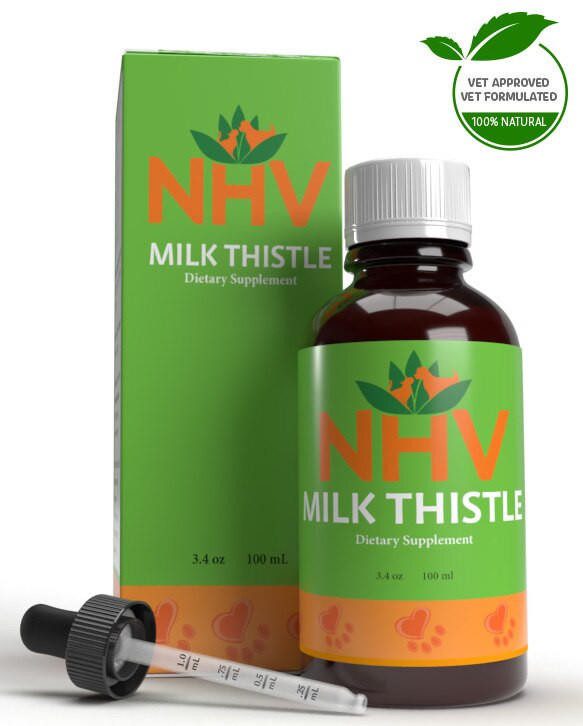
Support for liver and kidney detox and cancer support in dogs
3 month supply for a small to medium size pet
These effects help to remove chemicals and toxins that can accumulate in your dog’s system. It is one of the few herbs with no equivalent in conventional medicine.


These effects help to remove chemicals and toxins that can accumulate in your dog’s system. It is one of the few herbs with no equivalent in conventional medicine.

Milk Thistle is a powerful herb that’s been used by humans for thousands of years. The active ingredient, silymarin, has been shown through scientific studies to possess strong anti-inflammatory, antioxidant, and detoxifying properties. It also promotes cellular regeneration and repair.
This supplement by NHV Natural Pet Products uses 100% natural milk thistle to support dogs through liver and kidney conditions in addition to conventional treatment by their veterinarian.
Milk thistle improves kidney function due to the damage from:
The extraordinary antioxidant properties of milk thistle for dog extract acts to:
The scientific name for milk thistle is Silybum Marianum. It’s also referred to as wild artichoke and holy thistle.
Milk thistle for dog liver support can be used in conjunction with conventional treatments and is glycerin based and safe for long-term use. You can read more about the benefits of using milk thistle on Dr. Hillary Cook’s blog.
At NHV, all of our products including milk thistle for dog kidney support are plant-based and make excellent proactive support for many health conditions. If you have questions on milk thistle for dogs or any of our holistic supplements, you can ask an expert at NHV because we put your pet first when it comes to health and healing naturally.
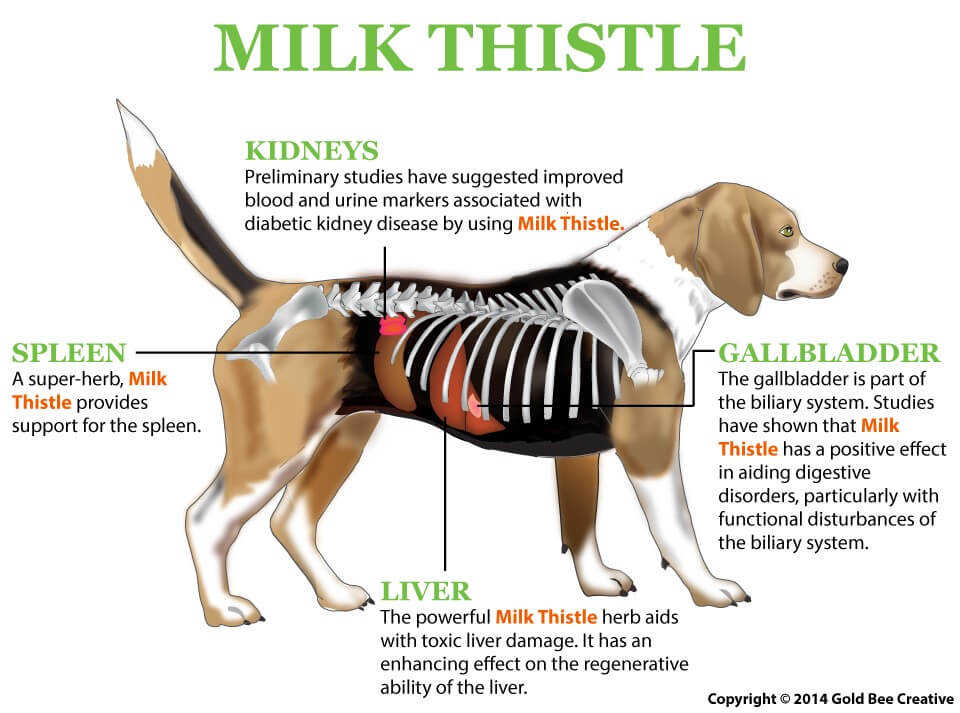
Select your pet's weight to determine the correct dose.
To be taken twice daily. Determine your pet’s weight and then use the easy chart below to determine the correct dose. This is the minimum dosage.
Pet's Weight Dosage
0 - 15 lb = 0.5 ml
16 - 30 lb = 1.0 ml
31 - 45 lb = 1.5 ml
46 - 60 lb = 2.0 ml
61 - 75 lb = 2.5 ml
Over 75 lb = 3.0 ml
How to Administer
Shake well before use. The easiest method is to use the dropper provide and places the drops into your pet’s food or favorite treat. You can also use the dropper and squirt directly into the pet’s mouth.
Some pets can be finicky, if this occurs consider hiding the drops in foods most pet’s love such as fish, chicken or yogurt or a favourite treat. If your pet only eats dry food then soak a few kibbles at feeding time.
For Best Results
Herbal dietary supplements are beneficial to the health and wellbeing of your pet and are safe for long-term use. Every pet responds to natural herbal supplements differently, therefore it is important to be consistent and administer the product daily. Supplements generally take two to four weeks to take effect, however this will vary from one animal to the next.
Product Storage
All NHV Natural Pet Products are pure herbal extracts and contain no artificial additives, preservatives or coloring. Shelf life after opening is 6 months and must be refrigerated after opening.
Cautions and Contraindications
Do not use Milk Thistle in pregnant or nursing animals. Speak to your vet before using our products. A second visit is recommended if your pet’s condition does not improve, or deteriorates after continued use of the supplements.
All information provided by NHV Natural Pet Products is for educational purposes only.
Milk Thistle is a powerful herb that’s been used by humans for thousands of years. The active ingredient, silymarin, has been shown through scientific studies to possess strong anti-inflammatory, antioxidant, and detoxifying properties. It also promotes cellular regeneration and repair.
This supplement by NHV Natural Pet Products uses 100% natural milk thistle to support dogs through liver and kidney conditions in addition to conventional treatment by their veterinarian.
Milk thistle improves kidney function due to the damage from:
The extraordinary antioxidant properties of milk thistle for dog extract acts to:
The scientific name for milk thistle is Silybum Marianum. It’s also referred to as wild artichoke and holy thistle.
Milk thistle for dog liver support can be used in conjunction with conventional treatments and is glycerin based and safe for long-term use. You can read more about the benefits of using milk thistle on Dr. Hillary Cook’s blog.
At NHV, all of our products including milk thistle for dog kidney support are plant-based and make excellent proactive support for many health conditions. If you have questions on milk thistle for dogs or any of our holistic supplements, you can ask an expert at NHV because we put your pet first when it comes to health and healing naturally.

Select your pet's weight to determine the correct dose.
To be taken twice daily. Determine your pet’s weight and then use the easy chart below to determine the correct dose. This is the minimum dosage.
Pet's Weight Dosage
0 - 15 lb = 0.5 ml
16 - 30 lb = 1.0 ml
31 - 45 lb = 1.5 ml
46 - 60 lb = 2.0 ml
61 - 75 lb = 2.5 ml
Over 75 lb = 3.0 ml
How to Administer
Shake well before use. The easiest method is to use the dropper provide and places the drops into your pet’s food or favorite treat. You can also use the dropper and squirt directly into the pet’s mouth.
Some pets can be finicky, if this occurs consider hiding the drops in foods most pet’s love such as fish, chicken or yogurt or a favourite treat. If your pet only eats dry food then soak a few kibbles at feeding time.
For Best Results
Herbal dietary supplements are beneficial to the health and wellbeing of your pet and are safe for long-term use. Every pet responds to natural herbal supplements differently, therefore it is important to be consistent and administer the product daily. Supplements generally take two to four weeks to take effect, however this will vary from one animal to the next.
Product Storage
All NHV Natural Pet Products are pure herbal extracts and contain no artificial additives, preservatives or coloring. Shelf life after opening is 6 months and must be refrigerated after opening.
Cautions and Contraindications
Do not use Milk Thistle in pregnant or nursing animals. Speak to your vet before using our products. A second visit is recommended if your pet’s condition does not improve, or deteriorates after continued use of the supplements.
All information provided by NHV Natural Pet Products is for educational purposes only.
Published: September 21, 2018